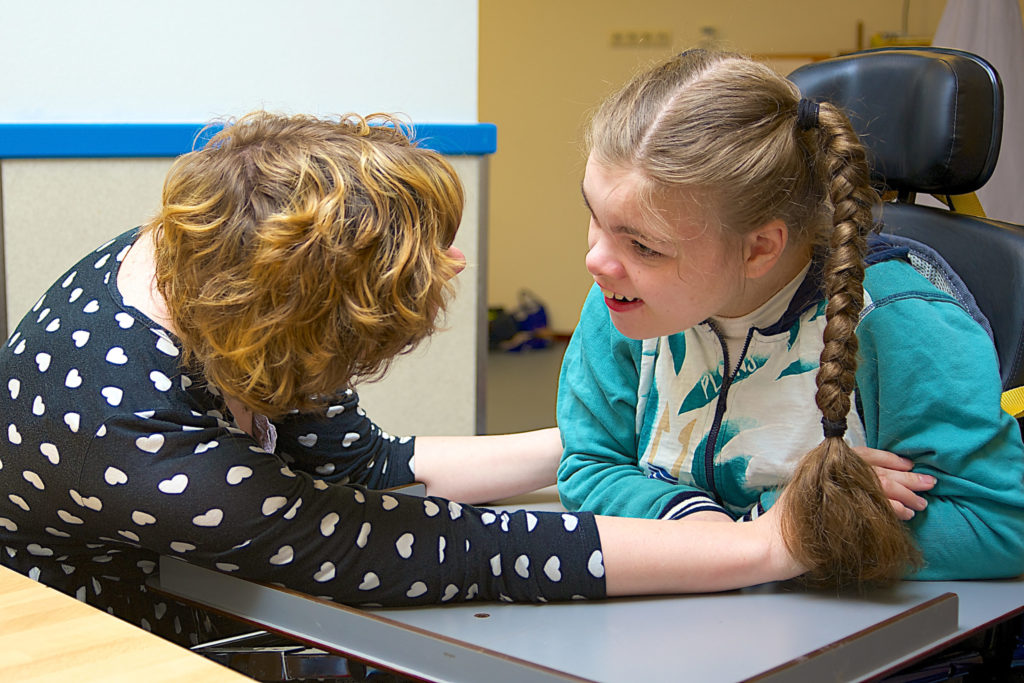These fundamental and shared principles, derived from the Schéma national pour les handicaps rares (National plan for rare disabilities), guide our collective outlook and bring together stakeholders of the Dispositif intégré (Integrated apparatus).
PARTICIPATION AND SELF-EXPRESSION ON THE PART OF THE CARE-RECIPIENT, AND OF THEIR FAMILY AND ENTOURAGE, AS WELL AS RECOGNITION OF THEIR SPECIFIC KNOWLEDGE AND EXPERTISE
- Taking the person with rare disability into account as protagonist in their life story
- Associating the person’s entourage, helpers, parents and relatives, with the creation and implementation of their personal project
- Favouring peer-support to support the capacities of the person and their friends and family
AN INTERVENTION LOGIC BASED ON THE CAPACITIES AND POTENTIAL OF THOSE RECOGNISED AS STAKEHOLDERS AND PARTNERS
- Promoting and ingraining the principle of a pedagogy of doubt and questioning (that is, assessing and understanding individual needs and capabilities to adapt responses – a hypothetical-deductive approach) within the culture of teams of support professionals
- Encouraging multidimensional assessment and shared analysis through close observation, intersecting the viewpoints of professionals and the entourage and taking into account the care recipient’s environment
- Disseminating global and functional (or integration-targeted) assessment practices, and the appropriate stances to be taken to best understand the care recipient’s potential and to support them in their path of life, particularly in their development of communication skills in order to facilitate their social participation
COOPERATION BETWEEN STAKEHOLDERS, MUTUALLY REINFORCING ACTIONS AND DECOMPARTMENTALISATION OF PROFESSIONALS
- Improving guidance for care recipients and enlisting, at the appropriate time, all the resources and expertises necessary to responding to their needs and to implementing their project (structuring technical requirements, resulting from practices with stakeholders, and a logic of proximity – as close to the region as possible)
- Consolidating and reinvesting knowledge and developing local intervention potential and collective skills via training and sustaining professional practices
- Putting institutional and professional co-responsibility into practice at the heart of the network, and amid the social, healthcare and medico-social fields, through shared analysis and interventional coherence
